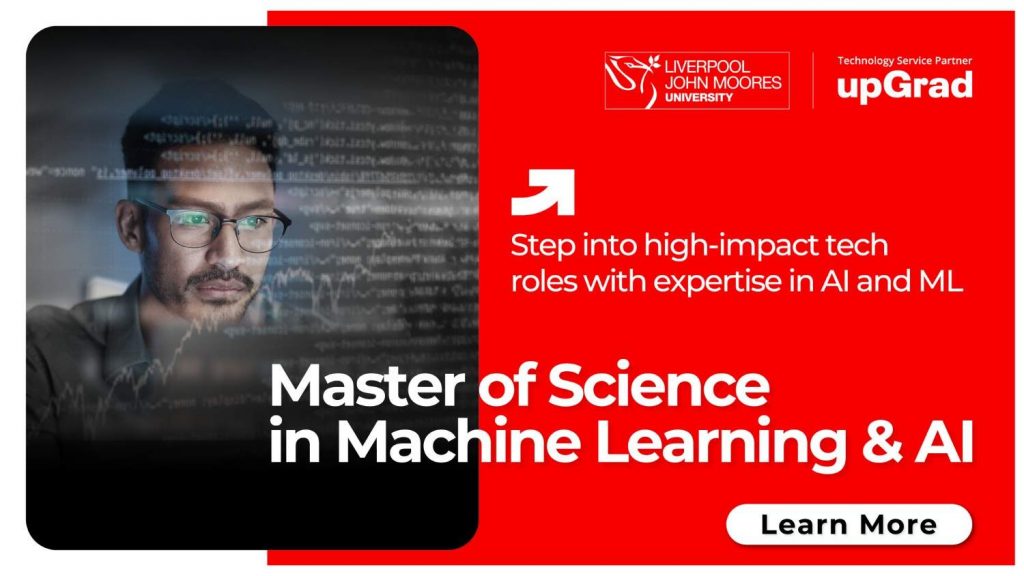Artificial Intelligence (AI) is no longer limited to technology experts or professionals involved in this industry. It has become a household name and a part of everyday discussion. Every generation, be it a 10-year-old or a 60-year-old, uses AI terms in regular conversations, making them household terms. Staying abreast of the basic AI terms has become necessary, especially for AI enthusiasts seeking to make it big in the evolving industry of artificial intelligence.
Let’s explore 15 key AI terms to know that are beginner-friendly and used across industries. Knowing these terms helps ensure a promising future in the emerging AI world.
Also Read: 5 Best Generative AI Tools for Text Generation
15 AI Basic Terms for Beginners to Know
Take a look at the enlisted glossary of AI terms below to know the basic AI terminologies:
Artificial Intelligence (AI)
As the name suggests, artificial intelligence (AI) refers to machines that copy human intelligence to communicate or make decisions. AI enables machines to learn and reason like humans to complete problem-solving tasks. For example, voice assistants, such as asking Alexa or Siri to play your favorite program or tell you about the weather.
Machine Learning
Machine Learning (ML) is a subdivision of AI that teaches machines to learn from data through interpreting and analysing large datasets. It helps in identifying patterns to find solutions to various problems that ML is capable of. ML helps in fraud detection and recommendation systems, among other tasks.
Algorithm
An algorithm is a set of rules a machine follows to do a task. Machines use a step-by-step procedure to perform tasks or solve specific problems. They are the backbone of all AI systems, helping computers make decisions and find solutions efficiently.
Deep Learning
Deep learning is similar to machine learning. However, it uses advanced algorithms and large datasets to solve complex problems. Examples of deep learning can be seen in autonomous driving cars, image recognition, real-time translation services, language translation, etc.
Automation
Automation is the use of AI to complete repetitive tasks more efficiently. It can take the form of email filters that help sort your inbox, or robotic vacuum cleaners to keep your house clean. Automation helps across several industries where robots restructure the production process and make tasks smoother.
Chatbots
These are machines that inspire human-like chat experiences or AI conversations. They can understand human inputs and respond to them accordingly. Chatbots use natural language processing (NLP) to interpret queries and present relevant answers to create a seamless and engaging user experience or communication.
Natural Language Processing (NLP)
NLP technology allows machines to understand and process human language for conversational tasks. It is an umbrella term for a machine’s ability to perform like a human by recognizing voices, powering chatbots, and using grammar-checking tools. NLP acts as a bridge between a machine’s ability to understand human language and interpret and respond accordingly.
Big Data
Big data implies extensive and complex data analysis by AI systems to identify patterns and trends. It is used across sectors, including e-commerce to improve customer experiences.
Data Mining
Data mining uses AI techniques to extract patterns and information from enormous datasets. It involves uncovering information from patterns. The technology is used primarily in healthcare and retail to predict treatment outcomes and identify consumer trends.
Generative AI
This subsection of AI represents AI’s creativity in crafting artwork, music, and other creative work by studying existing patterns. Once you feed these AI models with a specific pattern or style to train them, they use the knowledge to create original content based on the set pattern. Hence, Generative AI is like a digital artist that brings new creations to life.
Also Read: How Long Does It Take to Learn New AI Skills?

Supervised Learning
It is a form of Machine Learning in which the machine is trained from labeled data to answer already-known queries with the help of information provided during the training process. Here, learn by example is followed, where the system is provided with a clear set of inputs to get the corresponding output to help in accurate predictions.
Unsupervised Learning
Compared to supervised learning, unsupervised learning involves training AI from data without having any predefined answers. In unsupervised learning, AI analyses the data on its own to uncover hidden patterns. The learning takes place from unlabelled data via pattern identification.
Also Read: Top AI Skills to Learn to Accelerate Your Career in Singapore
Robotics
Robotics implies integrating artificial intelligence into machines to let them perform tasks independently. Some examples include drones used in the delivery of packages and surgical robots. Healthcare, logistics, and several other industries are witnessing the increasing use of robotic applications lately.
Neural Networks
Neural networks are modelled after the human brain. These are algorithms that help machines recognise patterns. Facial recognition is one example of neural networks.
Reinforcement Learning
Training AI through trial-and-error is called reinforcement learning. In this method, AI is rewarded for successful actions and penalised for unsuccessful ones. It is commonly used in robotics, game development, and finance. This technology is like training the system to know the actions that lead to smart decisions.
Also Read: Top AI Project Ideas for Beginners in Singapore
Why Does Understanding AI Terms Matter for Students and Professionals in Singapore?
Singapore is evolving as an innovative technology hub, with the emerging use of AI across sectors. Knowing key AI terms is essential for aspiring students and professionals to prepare for career transitions and to stay competitive in the changing job markets.
The extensive use of AI across Finance, Healthcare, Education, Logistics, and other sectors makes it pertinent for everyone to have basic AI literacy, regardless of their profession or age. This helps them to stay relevant and seize opportunities, collaborate effectively at work, and create a future-proof career to align with Singapore’s goals of a digital economy.
Also Read: Data Science vs. Machine Learning Engineer
Conclusion
Knowing AI terms has become necessary as it has become a part and parcel of everyday life. If you are planning to plunge into AI and related fields for an industry-ready career, upGrad Singapore can guide you as your reliable partner in your learning journey.
Take your skills to the next level — Explore Machine Learning AI Courses
Take a look at the AI-related courses and certifications offered by upGrad for the best career prospects:
- Post Graduate Certificate in Data Science & AI (Executive) – IIT Bangalore
- Executive Diploma in Machine Learning and AI
- Executive Diploma in Data Science and AI -IIT Bangalore
- Master of Science in Machine Learning & AI
For more information, email at query@upgrad.com or call +65-6232-6730.
FAQs on Beginner’s Guide to 15 AI Terms
Q: Why should I learn basic AI terms as a beginner?
Ans: Learning AI helps us understand the use of technology and how it can improve our lives. It also generates several job opportunities to explore.
Q: Is coding required to understand or work with AI?
Ans: Coding plays a critical part in AI development and helps create and implement AI algorithms and models that support AI systems in performing intelligently.
Q: What industries in Singapore are adopting AI the most?
Ans: Retail, finance, healthcare, logistics, education, and government services are among the many industries adopting AI in Singapore.
Q: Can I learn AI online as a complete beginner?
Ans: To learn AI as a complete beginner, you can consider a beginner course in AI to know what AI is all about and how to use AI to impact your career or business.
Q: How long does it take to learn the basics of AI?
Ans: The basics of AI can be learned in 4 to 8 weeks through beginner-friendly courses. Depending on the time and effort used, it may take a few months for some to understand the AI terms.































